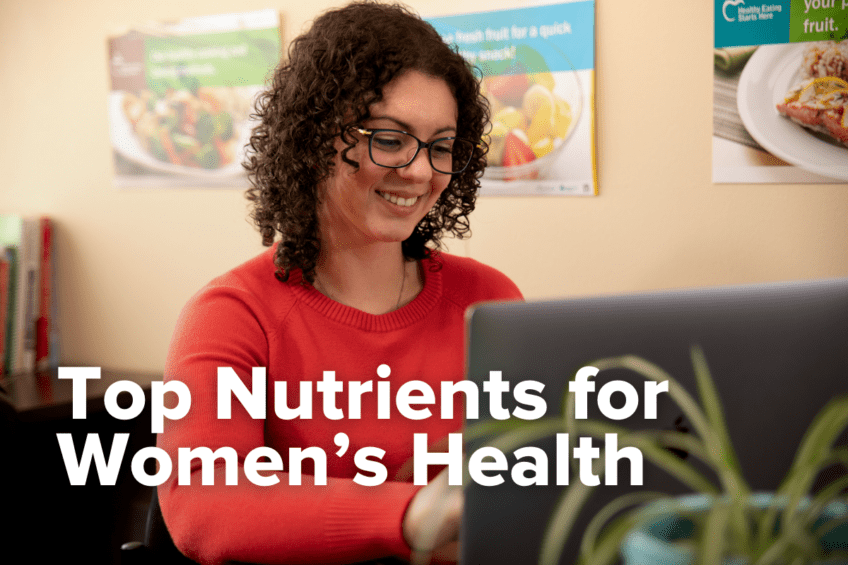Top Nutrients Every Woman Needs for Energy, Hormones, & Resilience
Women, like men, should enjoy a variety of foods, including whole grains, lean protein, fruits, vegetables, and dairy. However, there are specific nutrient needs that are often forgotten:
Calcium
Calcium is essential to help repair and build bone. Osteoporosis, a condition of too much bone loss or not enough build up of bone, is four times more likely in women than men and post-menopausal women are at an even greater risk. Eating calcium-rich foods helps to delay or even prevent osteoporosis.
Food sources:
- Dairy foods (milk, cheese, yogurt)
- Dark leafy green vegetables (kale, broccoli, spinach)
- Soy and soy products (edamame, tofu)
- Small fish with bone in (sardines, cod)
Iron
Iron is an essential nutrient as it helps to carry oxygen throughout the body, which then provides energy, reduces fatigue, helps with concentration, and improves muscle function among other roles. Women in particular are susceptible to iron deficiency due to monthly losses from menstruation and during pregnancy.
Food sources:
- Red meat
- Legumes
- Nuts and seeds
- Dried fruits
Omega-3
Omega-3s are a type of fat that the body needs but cannot make on its own. Omega-3 fats help to improve brain function, reduce inflammation (including menstrual pain), improves mood, and improves risk factors for heart disease.
Food sources:
- Fatty fish (salmon, mackerel, tuna, herring)
- Shellfish (oysters
- Nuts and seeds (flax, chia, hemp, walnut)
- Some oils (Avocado, canola)
Eating a variety of whole foods from each food group every day will help you to maximize the nutrients you are consuming. If you have any dietary restrictions or medical conditions that prevent you from eating certain foods, talk to your dietitian to learn how to ensure you are getting all the nutrients your body needs!
By
Registered Dietitian (Nutritionist)

